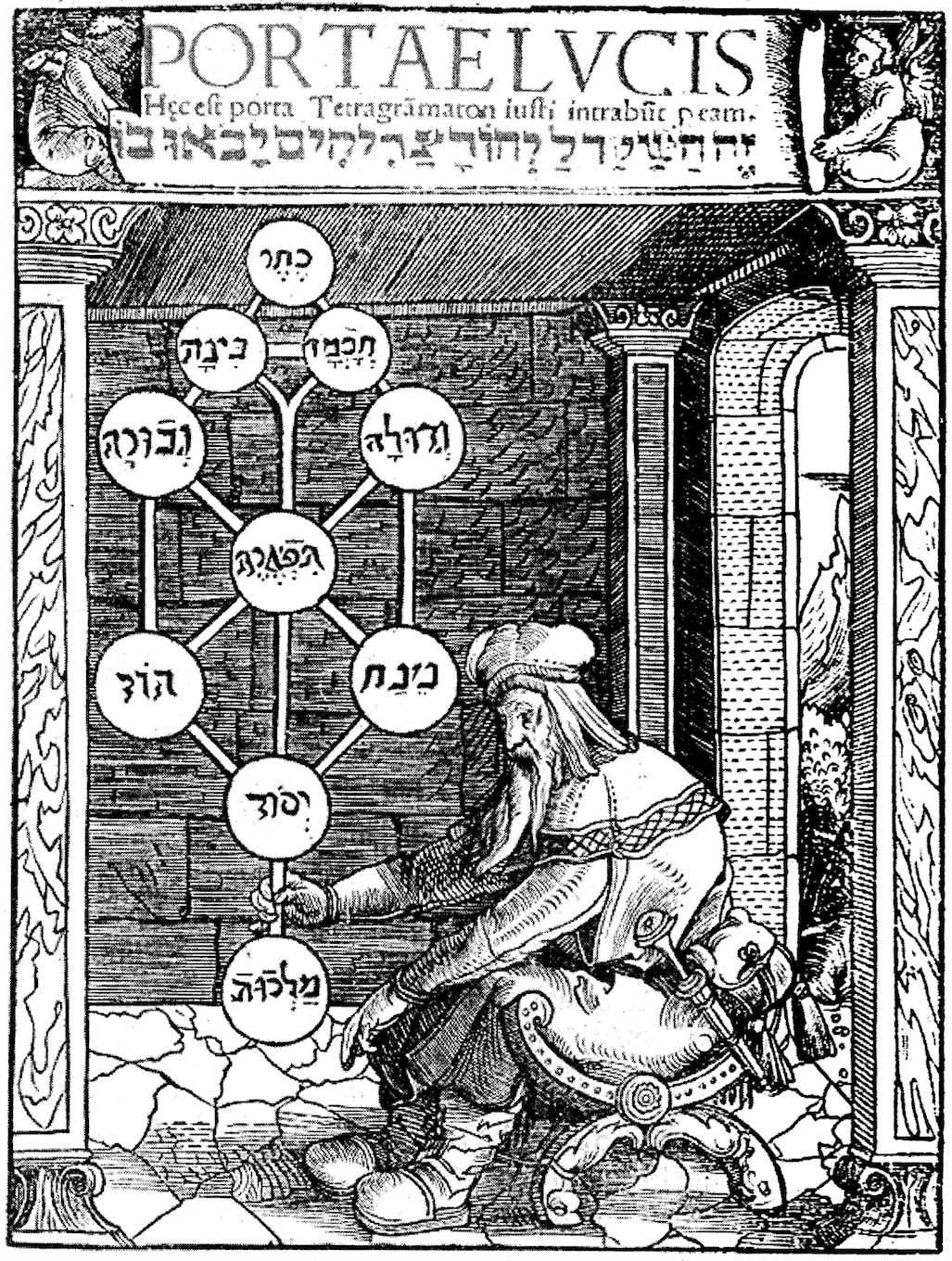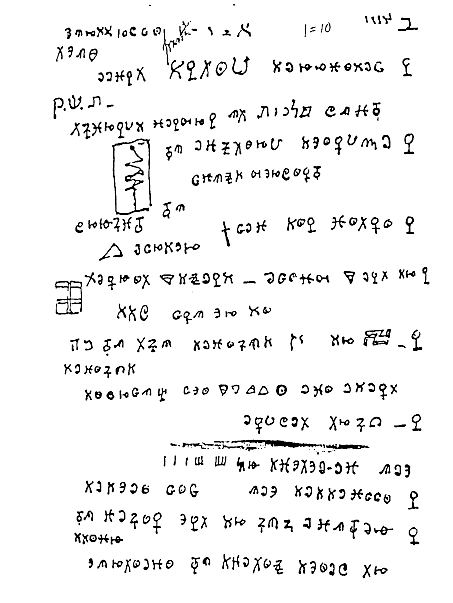|
Occultism
The occult () is a category of esoteric or supernatural beliefs and practices which generally fall outside the scope of organized religion and science, encompassing phenomena involving a 'hidden' or 'secret' agency, such as magic and mysticism. It can also refer to paranormal ideas such as extra-sensory perception and parapsychology. The term occult sciences was used in 16th-century Europe to refer to astrology, alchemy, and natural magic. The term occultism emerged in 19th-century France, among figures such as Antoine Court de Gébelin. It came to be associated with various French esoteric groups connected to Éliphas Lévi and Papus, and in 1875 was introduced into the English language by the esotericist Helena Blavatsky. Throughout the 20th century, the term 'occult' was used idiosyncratically by a range of different authors. By the 21st century the term 'occultism' was commonly employed –including by academic scholars in the field of Western esotericism studi ... [...More Info...] [...Related Items...] OR: [Wikipedia] [Google] [Baidu] |
Esoteric
Western esotericism, also known as the Western mystery tradition, is a wide range of loosely related ideas and movements that developed within Western society. These ideas and currents are united since they are largely distinct both from orthodox Judeo-Christian, Judeo-Christian religion and Age of Enlightenment rationalism. It has influenced, or contributed to, various forms of Western philosophy, mysticism, Western religions, religion, science, pseudoscience, Western art history, art, Western literature, literature, and Western culture#Music, music. The idea of grouping a wide range of Western traditions and philosophies together under the term ''esotericism'' developed in 17th-century Europe. Various academics have debated numerous definitions of Western esotericism. One view adopts a definition from certain esotericist schools of thought themselves, treating "esotericism" as a perennial philosophy, perennial hidden inner tradition. A second perspective sees esotericism as a ... [...More Info...] [...Related Items...] OR: [Wikipedia] [Google] [Baidu] |
Éliphas Lévi
Éliphas Lévi Zahed, born Alphonse Louis Constant (8 February 1810 – 31 May 1875), was a French esotericist, poet, and writer. Initially pursuing an ecclesiastical career in the Catholic Church, he abandoned the priesthood in his mid-twenties and became a ceremonial magician. At the age of 40, he began professing knowledge of the occult. He wrote over 20 books on magic, Kabbalah, alchemical studies, and occultism. The pen name "Éliphas Lévi", was a transliteration of his given names "Alphonse Louis" into Hebrew. Levi gained renown as an original thinker and writer, his works attracting attention in Paris and London among esotericists and artists of romantic or symbolist inspiration. He left the Grand Orient de France (the French Masonic organization that originated Continental Freemasonry) in the belief that the original meanings of its symbols and rituals had been lost. "I ceased being a freemason, at once, because the Freemasons, excommunicated by the Pope, did not be ... [...More Info...] [...Related Items...] OR: [Wikipedia] [Google] [Baidu] |
Anthroposophy
Anthroposophy is a spiritual new religious movementSources for 'new religious movement': which was founded in the early 20th century by the esotericist Rudolf Steiner that postulates the existence of an objective, intellectually comprehensible spiritual world, accessible to human experience. Followers of anthroposophy aim to engage in spiritual discovery through a mode of thought independent of sensory experience. Though proponents claim to present their ideas in a manner that is verifiable by rational discourse and say that they seek precision and clarity comparable to that obtained by scientists investigating the physical world, many of these ideas have been termed pseudoscientific by experts in epistemology and debunkers of pseudoscience.Sources for 'pseudoscience': Anthroposophy has its roots in German idealism, Western and Eastern esoteric ideas, various religious traditions, and modern Theosophy. Steiner chose the term ''anthroposophy'' (from Greek ἄνθρωπος , ' ... [...More Info...] [...Related Items...] OR: [Wikipedia] [Google] [Baidu] |
Helena Blavatsky
Helena Petrovna Blavatsky (; – 8 May 1891), often known as Madame Blavatsky, was a Russian-born Mysticism, mystic and writer who emigrated to the United States where she co-founded the Theosophical Society in 1875. She gained an international following as the primary founder of Theosophy as a belief system. Born into an aristocratic family in Yekaterinoslav, Blavatsky traveled widely around the empire as a child. Largely self-educated, she developed an interest in Western esotericism during her teenage years. According to her later claims, in 1849 she embarked on a series of world travels, visiting Europe, the Americas, and India. She also claimed that during this period she encountered a group of spiritual adepts, the "Masters of the Ancient Wisdom", who sent her to Shigatse, Tibet, where they trained her to develop a deeper understanding of the synthesis of religion, philosophy, and science. Both contemporary critics and later biographers have argued that some or all o ... [...More Info...] [...Related Items...] OR: [Wikipedia] [Google] [Baidu] |
Wicca
Wicca (), also known as "The Craft", is a Modern paganism, modern pagan, syncretic, Earth religion, Earth-centred religion. Considered a new religious movement by Religious studies, scholars of religion, the path evolved from Western esotericism, developed in England during the first half of the 20th century, and was Witchcraft Today, introduced to the public in 1954 by Gerald Gardner, a retired British civil servant. Wicca draws upon paganism, ancient pagan and Hermetic Order of the Golden Dawn, 20th-century Hermetic motif (folkloristics), motifs for theology, theological and ritual purposes. Doreen Valiente joined Gardner in the 1950s, further building Wicca's liturgical tradition of beliefs, principles, and practices, disseminated through published books as well as secret written and oral teachings passed along to Initiation, initiates. Many variations of the religion have grown and evolved over time, associated with a number of diverse lineages, sects, and Religious den ... [...More Info...] [...Related Items...] OR: [Wikipedia] [Google] [Baidu] |
Supernatural
Supernatural phenomena or entities are those beyond the Scientific law, laws of nature. The term is derived from Medieval Latin , from Latin 'above, beyond, outside of' + 'nature'. Although the corollary term "nature" has had multiple meanings since the ancient world, the term "supernatural" emerged in the Middle Ages and did not exist in the ancient world. The supernatural is featured in folklore and religious contexts, but can also feature as an explanation in more secular contexts, as in the cases of superstitions or belief in the paranormal. The term is attributed to non-physical entity, non-physical entities, such as angels, demons, gods and ghost, spirits. It also includes claimed abilities embodied in or provided by such beings, including Magic (supernatural), magic, telekinesis, levitation (paranormal), levitation, precognition and extrasensory perception. The supernatural is hypernymic to religion. Religions are standardized supernaturalist worldviews, or at least m ... [...More Info...] [...Related Items...] OR: [Wikipedia] [Google] [Baidu] |
New Age
New Age is a range of Spirituality, spiritual or Religion, religious practices and beliefs that rapidly grew in Western world, Western society during the early 1970s. Its highly eclecticism, eclectic and unsystematic structure makes a precise definition difficult. Although many scholars consider it a religious movement, its adherents typically see it as spiritual or as a unification of mind, body, and spirit, and rarely use the term ''New Age'' themselves. Scholars often call it the New Age movement, although others contest this term and suggest it is better seen as a Social environment, ''milieu'' or ''zeitgeist''. As a form of Western esotericism, the New Age drew heavily upon esoteric traditions such as the occultism of the eighteenth and nineteenth centuries, including the work of Emanuel Swedenborg and Franz Mesmer, as well as Spiritualism (movement), Spiritualism, New Thought, and Theosophy (Blavatskian), Theosophy. More immediately, it arose from mid-20th-century influen ... [...More Info...] [...Related Items...] OR: [Wikipedia] [Google] [Baidu] |
Magic (supernatural)
Magic, sometimes spelled magick, is the application of beliefs, rituals or actions employed in the belief that they can manipulate natural or supernatural beings and forces. It is a category into which have been placed various beliefs and practices sometimes considered separate from both religion and science. Connotations have varied from positive to negative at times throughout history. Within Western culture, magic has been linked to ideas of the Other (philosophy), Other, foreignness, and primitivism; indicating that it is "a powerful marker of cultural difference" and likewise, a non-modern phenomenon. During the late nineteenth and early twentieth centuries, Western intellectuals perceived the practice of magic to be a sign of a primitive mentality and also commonly attributed it to marginalised groups of people. Aleister Crowley (1875–1947), a British occultist, defined "magick" as "the Science and Art of causing Change to occur in conformity with Will", adding a 'k' ... [...More Info...] [...Related Items...] OR: [Wikipedia] [Google] [Baidu] |
Hermetic Order Of The Golden Dawn
The Hermetic Order of the Golden Dawn (), more commonly the Golden Dawn (), was a secret society devoted to the study and practice of occult Hermeticism and metaphysics during the late 19th and early 20th centuries. Known as a magical order, the Hermetic Order of the Golden Dawn was active in Great Britain and focused its practices on theurgy and spiritual development. Many present-day concepts of ritual and magic that are at the centre of contemporary traditions, such as Wicca and Thelema, were inspired by the Golden Dawn, which became one of the largest single influences on 20th-century Western occultism. The three founders, William Robert Woodman, William Wynn Westcott, and Samuel Liddell Mathers, were Freemasons and members of the Societas Rosicruciana in Anglia. Westcott appears to have been the initial driving force behind the establishment of the Golden Dawn. Hence the Golden Dawn system was based on hierarchy and initiation, similar to Masonic lodges. While th ... [...More Info...] [...Related Items...] OR: [Wikipedia] [Google] [Baidu] |
Theosophy
Theosophy is a religious movement established in the United States in the late 19th century. Founded primarily by the Russian Helena Blavatsky and based largely on her writings, it draws heavily from both older European philosophies such as Neoplatonism and Indian religions such as Hinduism and Buddhism. Although many adherents maintain that Theosophy is not a religion, it is variably categorized by Religious studies, religious scholars as both a new religious movement and a form of occultism from within Western esotericism. As presented by Blavatsky, Theosophy teaches that there is an ancient and secretive brotherhood of spiritual adepts known as the Masters of the Ancient Wisdom, Masters, who are found around the world but primarily centered in Tibet. These Masters were alleged by Blavatsky to have cultivated great wisdom and supernatural powers, and Theosophists believe they initiated the modern Theosophical movement through disseminating their teachings via Blavatsky. Theosop ... [...More Info...] [...Related Items...] OR: [Wikipedia] [Google] [Baidu] |
Qabalah
Hermetic Qabalah () is a Western esotericism, Western esoteric tradition involving mysticism and the occult. It is the underlying philosophy and framework for magical societies such as the Hermetic Order of the Golden Dawn, has inspired esoteric Christian organizations such as the Societas Rosicruciana in Anglia, is a key element within the Thelemic orders, and is important to mystical-religious societies such as the Builders of the Adytum and the Fellowship of the Rosy Cross. Hermetic Qabalah arose from Christian Kabbalah, Christian Cabala, which itself was derived from Jewish Kabbalah, during the European Renaissance, becoming variously Esoteric Christianity, Esoteric Christian, non-Christian, or anti-Christian across its different schools in the modern era. It draws on a great many influences, most notably: Kabbalah, Jewish Kabbalah, Western astrology, Alchemy, Paganism, Pagan religions, especially Egyptian and Greco-Roman, Neoplatonism, Hermeticism, and the symbolism of th ... [...More Info...] [...Related Items...] OR: [Wikipedia] [Google] [Baidu] |








